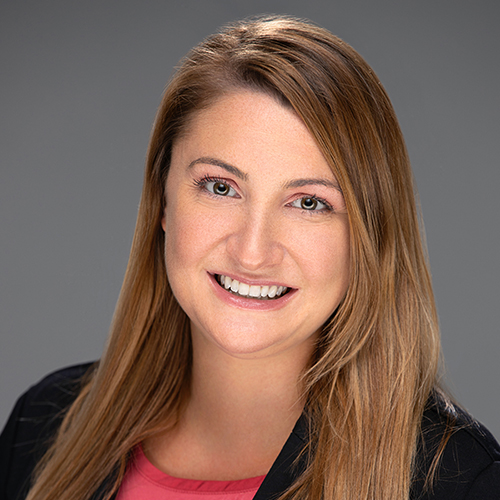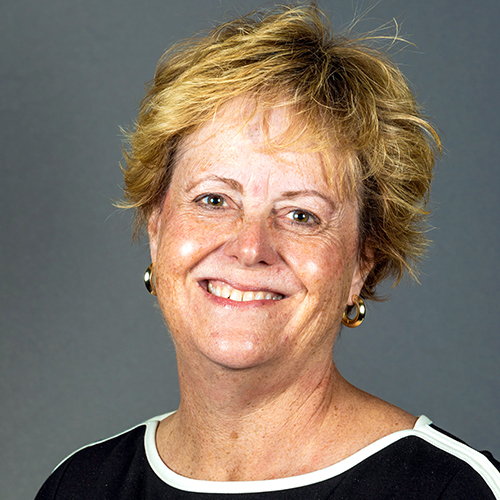 IBCLC Detailed Content Outline: Pathology Focused CERPs - Section III
IBCLC Detailed Content Outline: Pathology Focused CERPs - Section III
Access CERPs on Pathology for the IBCLC Detailed Content Outline recertification requirements. Enjoy convenient on-demand viewing of the latest Pathology focused IBCLC CERPs at your own pace.
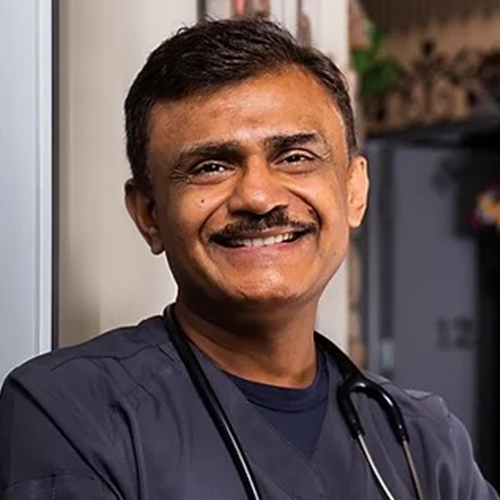
Frenectomy: The Importance of Anticipatory Guidance and Post Procedure Support

Dr. Agarwal went to medical school at All India Institute of Medical Sciences, AIIMS, in New Delhi, which is the premiere institution for medical training in India. After which, he came to the United States for his Pediatric Residency at the University of Texas Medical Branch at Galveston. Subsequently went on to join the Pediatric Nephrology fellowship at University of Florida at Gainesville. Under the program, he also conducted bench research at Ohio State University. Dr. Agarwal worked on the Eastern Shore of Virginia for eight years in general pediatrics before moving to Arizona to establish Agave Pediatrics in 2005. Over the years Dr. Agarwal has developed his own style of practicing pediatrics, which is strongly supportive of natural ways of taking care of children and emphasis on breastfeeding. During his practice, he realized that one of the biggest impairments in breastfeeding was the presence of labial and lingual ties. Having performed some procedures during medical school, he re-educated himself about the procedure and started performing them in 2007. In the last 15 years, Dr. Agarwal has performed more than 18000 frenotomies. Now, along with a busy clinical practice, he has made it his goal to spread the awareness about the issues related to labial and lingual ties to pediatricians, lactation consultants, doulas, midwives -everybody who helps mothers with the process of breastfeeding and in taking care of children with feeding and speech difficulties.
Frenectomy has become an increasingly more common procedure since the resurgence of interest in breastfeeding. Patient selection and anticipatory guidance provided to the family are key to success in reaching their goals. An honest discussion about the indications for doing the procedure and providing them with resources preemptively help in establishing trust and the future success of the procedure. After the procedure the care of the baby and the site are very intimidating to families and support at that time is vital to the success of the procedure. The post procedure experience can vary widely and to an extent depends on the family’s readiness. It is very important that post procedure be discussed before the procedure and support given after the procedure. Ultimately, the pre and post procedure interventions make the experience wholesome and conducive to successful breastfeeding.
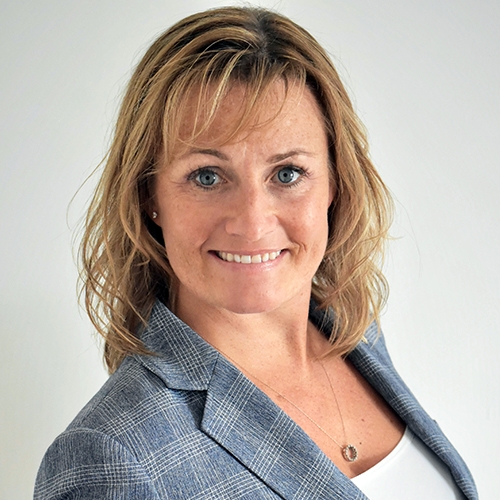
From Head to Toe It's All Connected: Pediatric TMJD, Tongue Tie, and Chiropractic Care

Dr. Jenna Davis is a Family Chiropractor and owns a highly successful family wellness multidisciplinary clinic, Acorn Family Health and Wellness Centre, in Oakville, Ontario. Dr. Davis has a focus on Preconception, Infertility, Pre- and Postnatal care, Pediatrics, Retained Primitive Reflexes, Infant TMJD and Women’s Health. Dr. Davis loves working with families in all stages and has a unique ability to educate her practice members so they feel heard, honoured and understand how chiropractic can improve their function and life. She has a passion for educating and is an avid lecturer both in and out of her office. Dr. Jenna Davis is a mother, author, entrepreneur, educator and is a sought after speaker internationally sharing information on many topics including the Power of Communication, Infertility, Pediatrics, Retained Primitive Reflexes, Infant TMJD, TOTs (Tethered Oral Tissues), Team Approach to Health and Wellness, and Women’s Health. Dr. Davis created a technique in 2016, the P.I.P.S. Technique (Pediatric Intraoral Palate Specific Technique) specifically to assist with Infant TMJD, Sphenoid Fault, Tongue-tie, Lip-tie, Dural Tension and Oral Motor and Oral Sensory Challenges. Dr. Davis has develooped a unique approach to combine sensory, motor, developmental and function into the care and approach to her practice members. Dr. Davis is also the creator of Baby Boom Creations, a company that develops and provides products to assist patients and practitioners in office and at home. Dr. Davis has been a featured speaker on many stages in Canada, the United States, Australia and the UK. She prides herself on her continual quest for the newest information and research and is a life long learner. Dr. Davis has done extensive postgraduate work and continues to expand and grow her knowledge base and resource team to give the best care possible to her practice members and the audiences she has the honour to present to.
Every day in practice Dr. Jenna Davis witnesses how TOTs and Pediatric TMJD, when not addressed, may lead to postural changes, mouth breathing, and may impact craniofacial growth, posture, spinal alignment, development and lead to overall compensation. Ankylofrenula and associated tension is rarely a solitary issue. In this session, we will discuss how these infants may present, the examination process, discuss intraoral work including the PIPS (Pediatric Intraoral Palate Specific) Technique, assessment protocols, and Chiropractic Bodywork. Dr. Jenna will demonstrate other incredibly important exercises parents can add at home to assist with the tension and lack of function often associated with ankylofrenula and TMJD. Learning to assess intraorally is critical for long term improvement at all ages. In this session Dr. Davis will discuss intraoral, palate, and cranial to sacrum assessments and chiropractic adjustments (chiropractic bodywork) that can be done to assist with changes related to Tongue Tie, Pediatric TMJD and associated dural tension. Finally strategies for communication about bodywork, your findings and recommended strategies will be shared to maximize and strengthen your relationship with patients/families, professionals you may co-manage this special population with and your community.
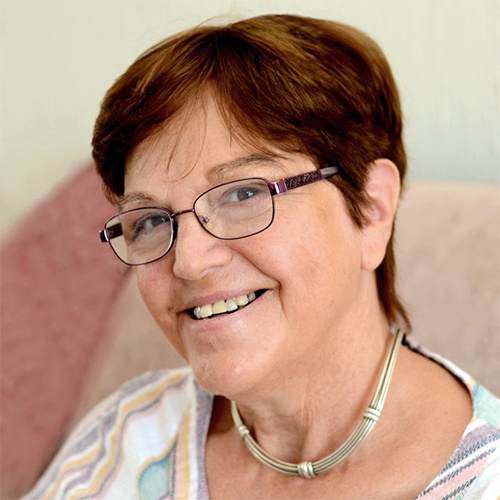

In her employed life Wendy was a community pharmacist and also worked in doctor surgeries supporting cost effective, evidence-based prescribing.
Wendy left paid work to concentrate on writing Breastfeeding and Medication (Routledge 2nd edition 2018), developing information and training material on drugs in breastmilk as well as setting up her own website www.breastfeeding-and-medication. She has also published Breastfeeding for Dads and Grandmas (Praeclarus Press) and Why Mothers Medication Matters (Pinter and Martin). She is also co editor of a book to be published January 2020 called A guide to breastfeeding for medical professionals (Routledge).
Wendy is known for her work on providing a service on the compatibility of drugs in breastmilk and has been a breastfeeding peer supporter for 30 years. She is passionate that breastfeeding should be valued by all and that medication should not be a barrier. She has 3 daughters and 5 grandchildren. All her family seem as passionate about breastfeeding as she is and currently all 3 of her daughters are breastfeeding.
She was awarded a Points of Light award by the Prime Minister in 2018 and nominated for an MBE in the New Year's Honours List 2018 for services to mothers and babies. She received her award at Windsor Castle in May 2019 from Her Majesty the Queen.
Topic: Medication and Breastmilk in the NICU - [View Abstract]
Topic: Pharmacokinetics and Clinical Implications of Drugs in Human Milk: The Substance-Exposed Infant - [View Abstract]
We know that the most common reason mums stop breastfeeding before they would otherwise choose is because they believe they don’t have enough breastmilk. In many cultures there a herbal remedies to increase milk supply. We have medicinal options available as well. What is the research behind the “magic wands”? Can any products cause harm rather than benefit? When should they be used and when is skilled breastfeeding support more important? Why is some populations is poor milk supply never a concern? Who is responsible for the perceived need to increase milk supply?
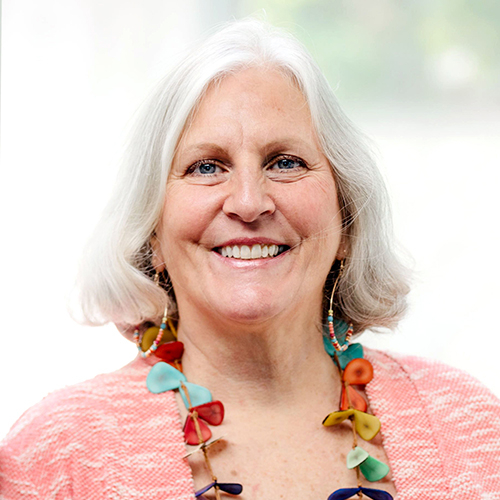
Gamechangers: New studies that will change the way we think about tongue-tie

Dr. Hazelbaker has been a therapist in private practice for over 30 years. She specializes in cross-disciplinary treatment and to that end has taken training in several modalities to best assist her clients. She is a certified Craniosacral Therapist, a Lymph Drainage Therapy practitioner, a Tummy Time™ Trainer, a Haller Method practitioner, A Pre and Perinatal Psychology Educator, a Lactation Therapist Diplomate, an International Board Certified Lactation Consultant and a fellow of the International Lactation Consultant Association.
She earned her Master’s Degree from Pacific Oaks College (Human Development specializing in Human Lactation) and her doctorate from The Union Institute and University (Psychology, specializing in Energetic and Transformational healing.)
People recognize her as an expert on infant sucking issues caused by various structural problems like torticollis, plagiocephaly, brachycephaly and tissue shock-trauma. She invented the Hazelbaker™ FingerFeeder and the Infant Breastfeeding CranioSacral Protocol™ to assist in the resolution of this type of infant sucking dysfunction.
Topic: Cranial Nerves: A Critical Component of the Process of Breastfeeding - [View Abstract]
Topic: Creating Flow: Using Lymphatic Drainage Therapy for Breastfeeding Issues - [View Abstract]
Topic: Finger Feeding: What Do We Know? What Should We Know? - [View Abstract]
Topic: Gamechangers: New studies that will change the way we think about tongue-tie - [View Abstract]
Topic: Infant Trauma: Impact on Breastfeeding - [View Abstract]
Topic: The Faux Tie: When is a "Tongue-tie" NOT a Tongue-tie? - [View Abstract]
Topic: The Impact of Bodywork on Infant Breastfeeding - [View Abstract]
Topic: What Does Torticollis Have to do with Breastfeeding? - [View Abstract]
This presentation examines several influential recent studies that will change the way we think about tongue-tie; the manner in which we examine, treat and perform therapy on babies. From the overall perspective of development, Dr. Hazelbaker looks at histology, speech development, posture, wound healing, lasers and airway integrity, citing the most exciting studies on these subjects, explaining how each will impact our philosophical, intellectual and clinical involvement with study findings. Further, Dr. Hazelbaker makes suggestions of how these various studies should guide our thinking about when and how to assess and treat tongue-tied infants.
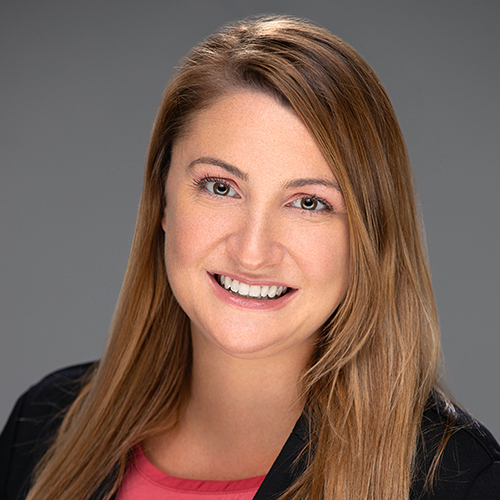

Dr. Jennifer Barnes is the Neonatal Intensive Care Clinical Pharmacy Specialist at Levine Children’s Hospital in Charlotte, NC. She has over 10 years of experience within the field. Dr. Barnes received her bachelor’s degree at Virginia Tech and her Doctor of Pharmacy at Virginia Commonwealth University’s Medical College of Virginia. She completed her pharmacy practice residency at Alamance Regional Medical Center- Cone Health. Dr. Barnes is board certified in pediatric pharmacotherapy. She is also an active member of the Pediatric Pharmacy Association (PPA) and is currently serving as the neonatology committee chair. Dr. Barnes serves as a clinical assistant professor for pharmacy advanced practice rotations for University of North Carolina, University of South Carolina, Wingate University and High Point University. Her current research areas of interest include the role of diuretics in bronchopulmonary dysplasia treatment and antibiotic stewardship for late-onset sepsis amongst other topics.
Topic: Get the LOW Down on Neonatal Hypotension - [View Abstract]
Topic: Starbucks for Babies? Caffeine Use in Neonates - [View Abstract]
At no other time does the hemodynamic status so drastically and rapidly change as the transition from fetal to extrauterine life. Neonates may experience hypotension due to delayed transition, factors of prematurity such as immature myocardium or secondary to a variety of comorbid states including but not limited to chorioamnionitis, perinatal asphyxia, hypovolemia, patent ductus arteriosus, necrotizing enterocolitis, and sepsis. The definition of hypotension and decision to treat are two of the most controversial topics within neonatology. This is in part due to great variability in blood pressure (BP) ranges among neonates and lack of supporting literature which correlate precise blood pressure values with poor clinical outcomes. Of those affected by hypotension, approximately 10-25% of infants weighing < 1500 grams at birth go on to require a vasoactive medication. Despite decades of research, there is still no definitive evidence regarding the impact of treatment for neonatal hypotension, aside from the fact that vasopressors do tend to increase blood pressure. Vasoactive medications are frequently utilized in hypotensive patients however the underlying pathophysiology should be backbone of which medication is chosen. After this presentation, the audience will have a better understanding of when to treat and benefits and risks of common pharmacotherapy agents for hypotension and shock.
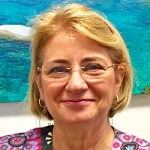
How B.E.S.T. (Basic Evaluation of Structural Tension) Relates to Breast©

Judy Terwilliger is a Clinical RN Therapist with Pediatric experience for over 30 years. As lead therapist, researcher and educator in her proprietary form of functional mobility therapy (Functional Bowen™), she works with allied health care providers in the resolve of hidden structural barrier challenges for infants and children. Her collaborative, integrative team care approach sees many successes. She is committed to equipping families with the tools necessary in support of breastfeeding and enabling parents to participate in the resolve of their children’s structural challenges. She is a member of the National Society of Pediatric Nurses and was a nominee in the 2013 Clinical Excellence in Practice Award. She has been a speaker at the Northern California Placer County Breastfeeding Coalition, Imperial Valley Breastfeeding Summit and presented at the 2016 California Breastfeeding Coalition. Her professional memberships include: ABM Network, International Pediatric Integrative Medicine Network, IATP, and Breastfeeding USA. Judy is a licensed continuing education provider for the National Certification Board for Therapeutic Massage & Bodywork, California Board of Registered Nurses, The California Physical Therapy Association, and the International Board of Lactation Consultant Examiners.
This lecture/course is intended to familiarize the medical and allied health community in the recognition of the often-overlooked muscle-related structural barriers to breastfeeding. It provides a discussion of clues to the predisposing factors of these barriers and explores their affect on infant "functional mobility" as it relates to the achievement of successful breastfeeding. It is intended to improve the clinician’s assessment skills as they work with the mother/infant dyad in resolving breastfeeding difficulties/dysfunctions by development of insight into these often hidden and profoundly destructive structural manifestations. Recognition of these barriers with an emphasis on self-help techniques and when/who to refer parents/caregivers to for help, together with how to best meet their teaching/training needs across cultural barriers, is discussed. The ultimate purpose is the achievement of insight to improve the clinician’s evaluation process, better enabling them to promote, enhance and even save the breastfeeding experience of the families served.

View Details / Enroll
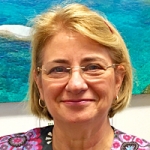
View Details / Enroll
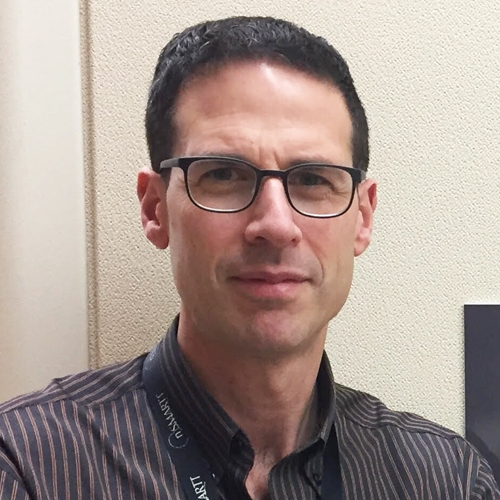

Dr. Narvey began his training in Pediatrics at the University of Manitoba in Winnipeg where he completed a year of further training in Neonatology. This was followed by two years of Neonatal fellowship at the University of Alberta in Edmonton. Afterwards he began his career as a Neonatologist in the same city and over the 6 years he spent there, his career included both clinical and administrative duties including 4 years as the Fellowship Program Director and two years as the Medical Director for a level II unit. In late 2010 he accepted a position in Winnipeg to become the Section Head of Neonatology and continues to hold this post. In 2016 he took on the additional role of Medical Director of the Child Health Transport Team. In 2015 he became a member of the Canadian Pediatric Society’s Fetus and Newborn Committee and in 2019 took over as Chair of the same. His interests predominantly lie in the use of non-invasive technology to minimize painful procedures during an infants stay in the NICU. He is active on social media and has a passion for fundraising and is an active board member of the Children’s Hospital Foundation of Manitoba.
Topic: Human Milk Diet and Fortification: Controversies and Evidence - [View Abstract]
Topic: Many Different Shades of Yellow - [View Abstract]
Topic: Respiratory Problems in the Newborn: Where Are We in 2022? - [View Abstract]
Topic: Sweet and Sour: Hypoglycemia in the Newborn - [View Abstract]
Research supporting the use of exclusive human milk diets will be reviewed. From there we will look at the evidence for improving both short and long term outcomes and then determine what other options exist and where we might be headed in neonatal nutrition.

View Details / Enroll
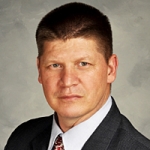
Human Milk Synthesis: Just When You Thought You Knew

Tom Johnston is unique as a midwife and lactation consultant and the father of eight breastfed children. Recently retired after 27 years in the US Army, he is now an Assistant Professor of Nursing at Methodist University where he teaches, among other things, Maternal-Child Nursing and Nutrition. You may have heard him at a number of conferences at the national level, to include the Association of Woman’s Health and Neonatal Nurses (AWHONN), the International Lactation Consultant’s Association (ILCA), or perhaps at dozens of other conferences across the country. In his written work he routinely addresses fatherhood and the role of the father in the breastfeeding relationship and has authored a chapter on the role of the father in breastfeeding for “Breastfeeding in Combat Boots: A survival guide to breastfeeding in the military”.
Topic: Human Milk Synthesis: Just When You Thought You Knew - [View Abstract]
Topic: New Insights Into the Maternal Child Microbiome - [View Abstract]
Topic: Promoting Provider Self-Efficacy in Breastfeeding Support - [View Abstract]
Topic: Still Swimming Upstream: Breastfeeding in a Formula Feeding World - [View Abstract]
Topic: The Making of Human Milk: A Clinical Update - [View Abstract]
Topic: The Maternal-Child Microbiome or: The “Oro-boobular axis” - [View Abstract]
Topic: The Maternal-Child Microbiome or: The “Oro-boobular axis” - [View Abstract]
Topic: The Perinatal Microbiome - [View Abstract]
Topic: Using Evidence to Develop Clinical Lactation Skills - [View Abstract]
"I didn't make enough milk!" We hear it on a regular basis from heartbroken new mothers. In fact, this is the number one factor contributing to breastfeeding failure after two weeks of age is a perception of inadequate milk production. This phenomenon of sudden onset lactation failure is widely accepted as a common occurrence among breastfeeding mothers. This topic has been the subject of a number of quality studies that have yielded a conflicting mix of responses from primary health care providers and lactation consultants alike. This discussion will attempt to shed light on the very different concepts of "Milk Production" vs. "Milk Synthesis" and will demonstrate how confusion between those two concepts have clouded the study of milk production, promote the fallacy of "insufficient milk production syndrome", and contribute to the failure of breastfeeding. This presentation will also attempt to provide a preliminary course of action to begin anew in milk production research and perhaps even provide a framework for helping the new mothers facing the milk supply challenge.


Dr. Ankita Shah is a leading Airway Focused Dentist. She is also the President of the India Airway Co-LAB Chapter initiated by AAPMD, New York & The Breathe Institute, Los Angeles. Dr. Ankita is also the only Indian Ambassador to be trained by the renowned ENT & Sleep Surgeon Dr. Soroush Zaghi. The Tongue Tie & Sleep Institute headed by her focuses on providing a comprehensive, holistic and multidisciplinary approach to all problems Tongue Tie, Airway & TMJ. She wishes to change the way in which medicine has approached problems in the past and provide patients with a redefined experience to dentistry.
What are tethered oral tissues and what is the role of fascia? Fascia is a thin casing of connective tissue that surrounds and holds every organ, blood vessel, bone, nerve fiber and muscle in place. How is the fascial system connected to TOTS? The condition of tongue-tie and lip-tie exists on a continuum with variable visibility and symptoms differently across the body through different age groups. Some restrictions, mainly anterior or “classic” tongue tie, are highly visible and easier to detect. However, “posterior” or submucosal tongue-ties are often more challenging to diagnose. Through this session, we will explore a detailed dissection of what is fascia and how the concept of tongue ties has evolved and changed with the role of fascia and its impacts with TOTS. It takes a village of specialists to treat this challenging problem. We will learn how we can help prevent a vicious circle of problems if treated early with a holistic integrative approach.
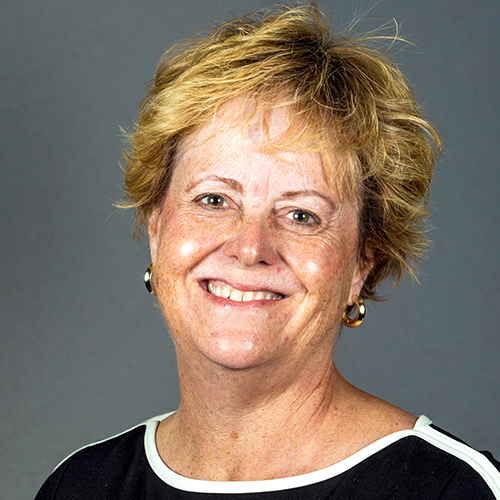

Gail A. Bagwell, DNP, APRN, CNS works at Nationwide Children's Hospital as the CNS of Perinatal Outreach and clinical instructor of practice at the Ohio State University College of Nursing. In her role she works with the healthcare providers caring for neonates and provides education to healthcare providers on the well-newborn as well as care of the sick and premature newborn and serves as a resource on neonatal and quality improvement initiatives. Gail is a member of the National Association of Neonatal Nurses (NANN) and currently the Immediate Past President of the organization. She is also a member of the Central Ohio Association of Neonatal Nurses, American Nurses Association, Ohio Nurse’s Association, Association of Women’s Health and Neonatal Nursing, Academy of Neonatal Nursing, National Association of Clinical Nurse Specialists, Sigma Theta Tau and a Fellow in the American Academy of Nursing. Gail's interests are neonatal abstinence syndrome, breastfeeding, safe sleep, newborn resuscitation and stabilization and parent transition. Gail is a published author of book chapters in all six editions of the Kenner’s ""Comprehensive Neonatal Care"" textbook, the Encyclopedia of Child and Adolescent Development, Neonatal Nursing Care Handbook, editor of the NANN Guideline for Newborn Safe Sleep and multiple journal articles.
Sleep related deaths are the number one cause of infant deaths in the United States, with neonates that have been in a NICU being at a higher risk. In order to combat this problem, the American Academy of Pediatrics (AAP) in the early 1990's began publishing recommendations on how to prevent sleep related deaths in healthy term infants. This effort has led to a decrease in infant sleep related deaths, but confusion remains on when a premature or convalescing neonate be transitioned to a safe sleep environment in the NICU. This presentation will review the different types of sleep related deaths in infants, most current theory of cause of SIDS, review the myths of safe sleep and give guidance to the NICU nurse on how to implement safe sleep in their unit.







